Weekly News Roundup 27/08/23
- News
- August 27, 2023
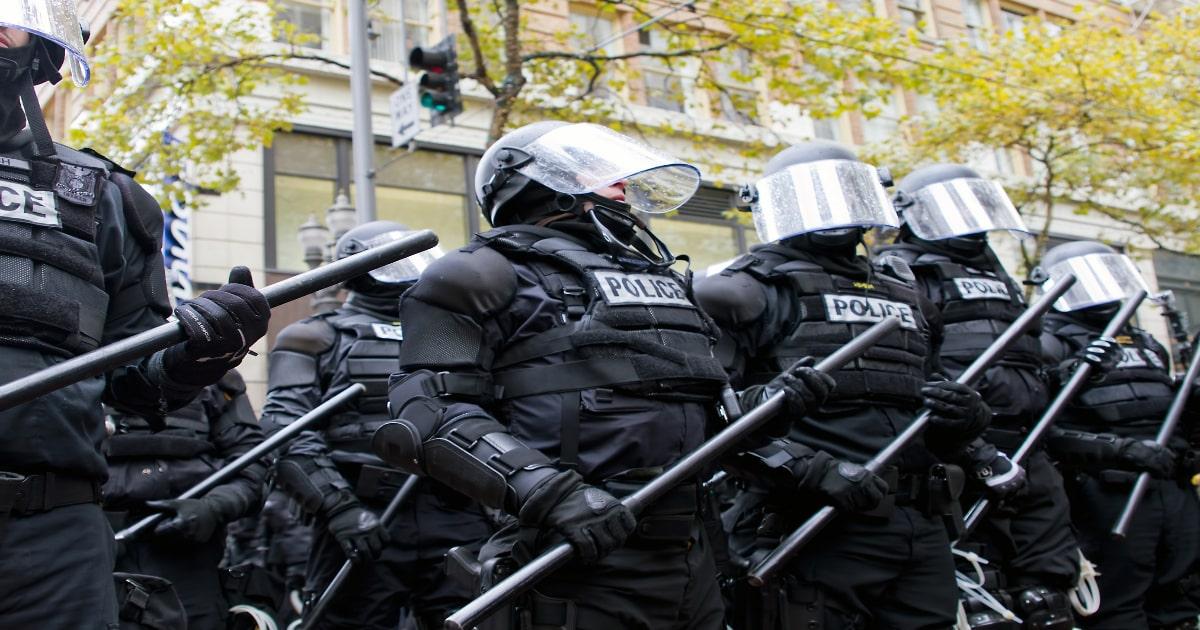
Martial law has to be one of the modern prepper’s worst nightmares, a UK police state on their very doorstep that severely curbs their liberties. Martial law happens when the government declares a national emergency that requires the military to be brought in and take direct control of the civilian population, affecting every part of life.
We all have faith that our government is there because we chose them, we elected them and gave them their position of power from our own informed choice. What’s scary about military law is that the armed forces replace the duly elected government and police force of Britain and exercises its power as it sees fit.
It is an extreme measure adopted by the government, and in the UK this kind of power is given to the military by using the Civil Contingencies Act created in 2004.
It can happen in response to any kind of emergency or SHTF scenario such as mass rioting, civil unrest, war or a countrywide natural disaster. In most cases it would be called upon if there was a coup d’etat against parliament or the UK cabinet, where a sector of the population wishes to overthrow the government.
There was speculation that martial law could have been introduced in the UK after Brexit to deal with shortages of medicine, food and fuel that caused high levels of civil disobedience, unrest and rioting, but it wasn’t deemed necessary.
It may seem like an innocent approach that the powers that be can use to preserve the continuity of government should a SHTF situation arise, however in many countries martial law has been declared with disastrous effects. Habeas Corpus, the right to fair trials, is usually withdrawn, and things can go downhill quickly from there until you find yourself under curfew with military roaming the streets.
It is called different things in various countries, such as invoking the Insurrection Act in America, the National Defence Act in Canada and just the Defence Act in Australia, but it all has the same effect of bringing in the military to assist during times of crisis.
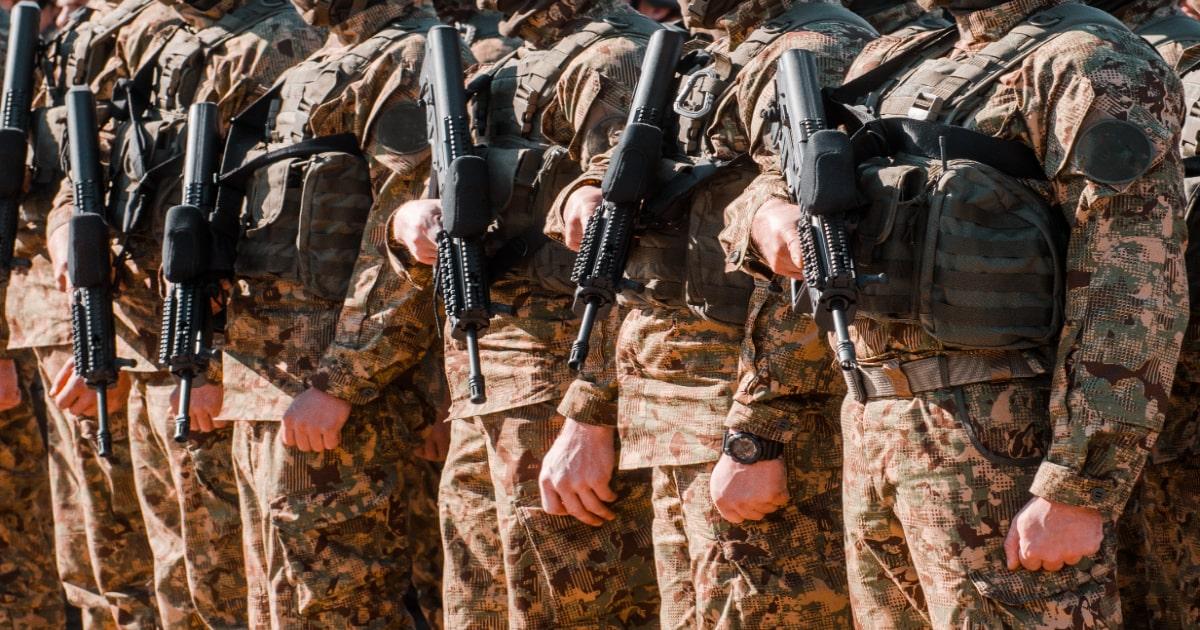
Just a few martial law examples include the Philippines which was under military law from 1972 until 1986, completely ruled over by just one person – Ferdinand Marcos. During this period in the Philippines, over 3,250 people were murdered by the government without a trial, 35,000 were tortured and 70,000 were imprisoned. These were simply people who Marcos viewed as opposition to his government.
Let’s also not forget about the martial law entitled the ‘Enabling Act’ that Adolf Hitler ruled over Germany with in the 1940s, and in just a few short years after this was passed numerous human rights violations took place and over 11,000,000 people were killed.
Martial law has been declared in at least 20 countries in the past few decades, and other martial law examples include Thailand (2014), Egypt (2013), China (1989) and Canada (1970). The USA has declared martial law a whopping 68 times in its history, more than any other country! There are different types of martial law declared for a variety of reasons, which we’ll explore later on.
This martial law survival guide for preppers will tell you just about everything you need to know, from how it is declared, to the signs to look out for, and how to stay safe when the SHTF.
To date, martial law in its current form has never been declared in the United Kingdom. The Civil Contingencies Act of 2004 has never been brought into force since it was created. However, this new Act was intended to replace the Emergency Powers Act of 1920, which states that emergency powers may used if there are issues with the supply or distribution of water, food or fuel, that intends to deprive people with the essentials of life.
This Act was used 12 times, mainly in reaction to industrial unrest – the dock strikes of Britain in the late 1940s, the rail strike in the 50s and the coal miner strikes of the 70s. In all cases, the military was brought in to take over civilian duties. The declaration of a state of emergency and for the Act to be used in the country had to be signed off by the ruling monarch – the reigning king or queen.
If British civilian workers were found breaking the Act, then they could receive imprisonment with or without hard labour for three months, in addition to a hefty fine.
During the two world wars starting in 1914 and 1939 respectively, new legislation was introduced which provided the government with martial law like powers – the Defence of the Realm Act (known as DORA) in 1914 and the Emergency Powers Act (in relation to Defence) in 1939. The updated 1939 Act in Section 2 gave permission to soldiers to take on civilian roles in farming and other kinds of work that was declared as important to the functioning of the nation.
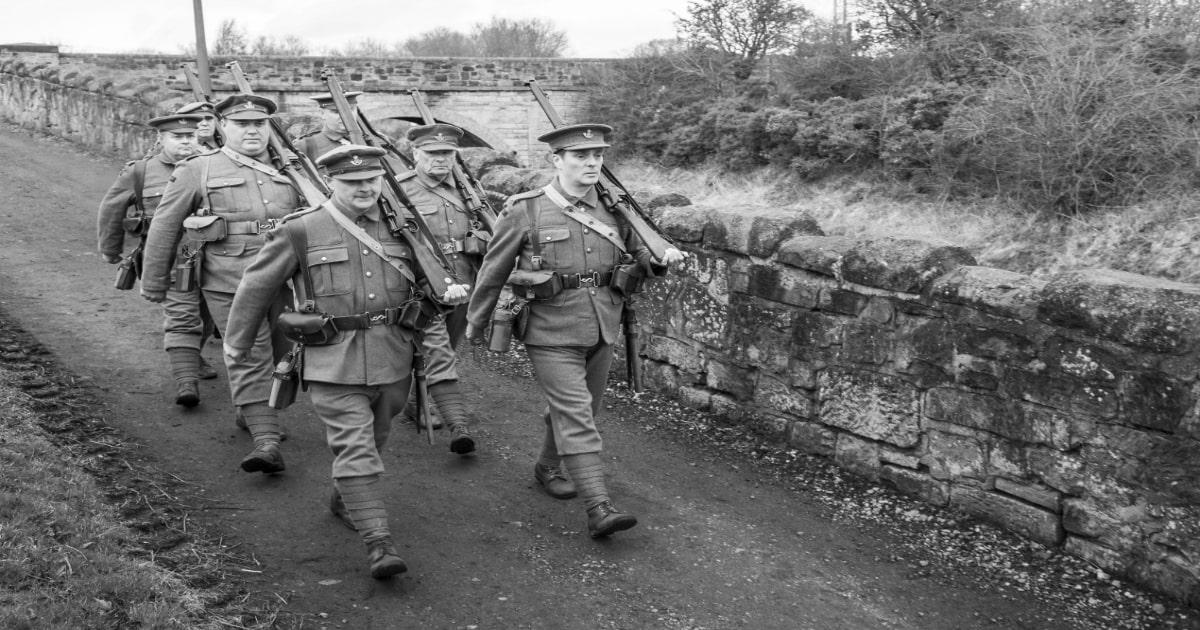
DORA on the other hand had a number of sweeping powers that had many parallels to our current martial law acts. The government was given full power to do basically anything it wanted if it was believed to assist the war effort and ultimately allow them to protect the country. This included creating laws without having to put them through parliament for approval first, which is the basis of democracy.
The Act allowed for a number of worrying things to happen, including:
During the Irish War of Independence which took place in the Easter of 1916, the Lord Lieutenant of Ireland declared full martial law to preserve peace and order in Dublin. The British government allowed this to happen, and the same kind of law was instituted during the Irish Civil War of 1922.
In Ireland, the Constitution still allows for this kind of strict military rule to be used only in a real state of emergency in the country, but capital punishment can never be invoked.
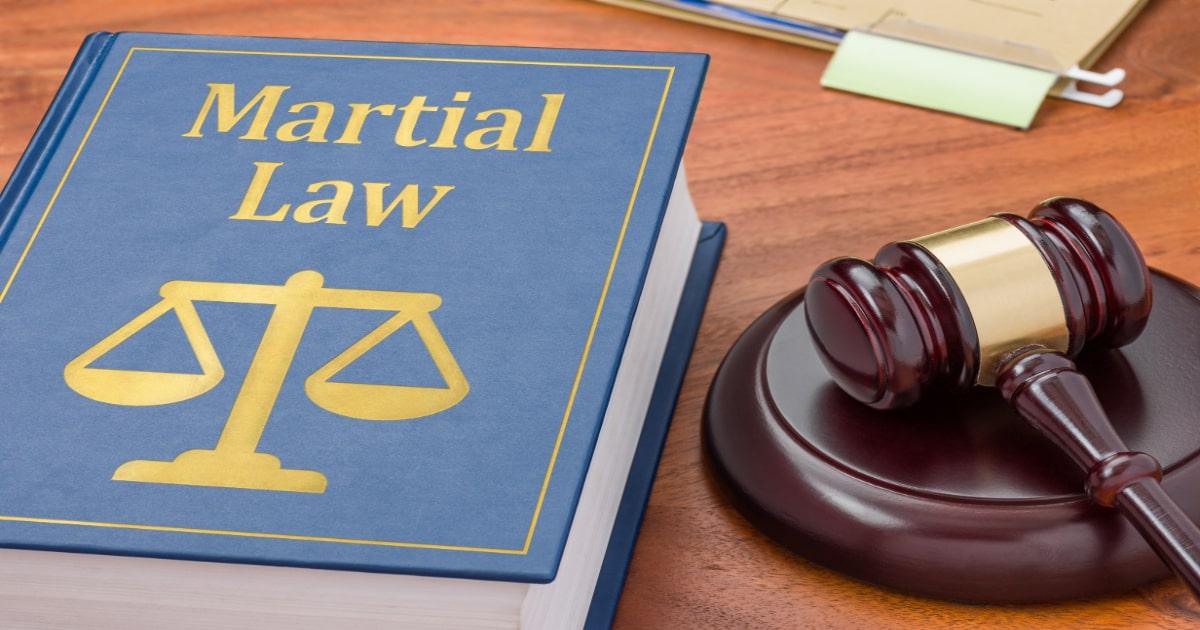
Martial law is a tricky subject to tackle when it comes to legality, because any civilised country realises that laws have to be for the people by the people and cannot be excessive in order to keep a free society.
In fact, the British were the first to realise this and as far back as 800 years ago, before America was even discovered, the Magna Carta was created in 1297 to curb the power of one person over the entire country, to prevent a military dictatorship – the very first human rights document.
This was the same year that the world’s first democratic parliament was formed in London. In short, the Magna Carta states that the rule of law applies to everybody equally, from the peasant to the king, and it gives individuals important rights such as the right to a fair trial, Habeas Corpus, if convicted of a crime.
Many of the human rights documents that have followed in the centuries after draw directly from the principles laid out in the original thirteenth century Magna Carta, including the America Bill of Rights in 1791 and the European Convention on Human Rights in 1950. This is to prevent any kind of human rights violations and the suspension of human rights during times of crisis.
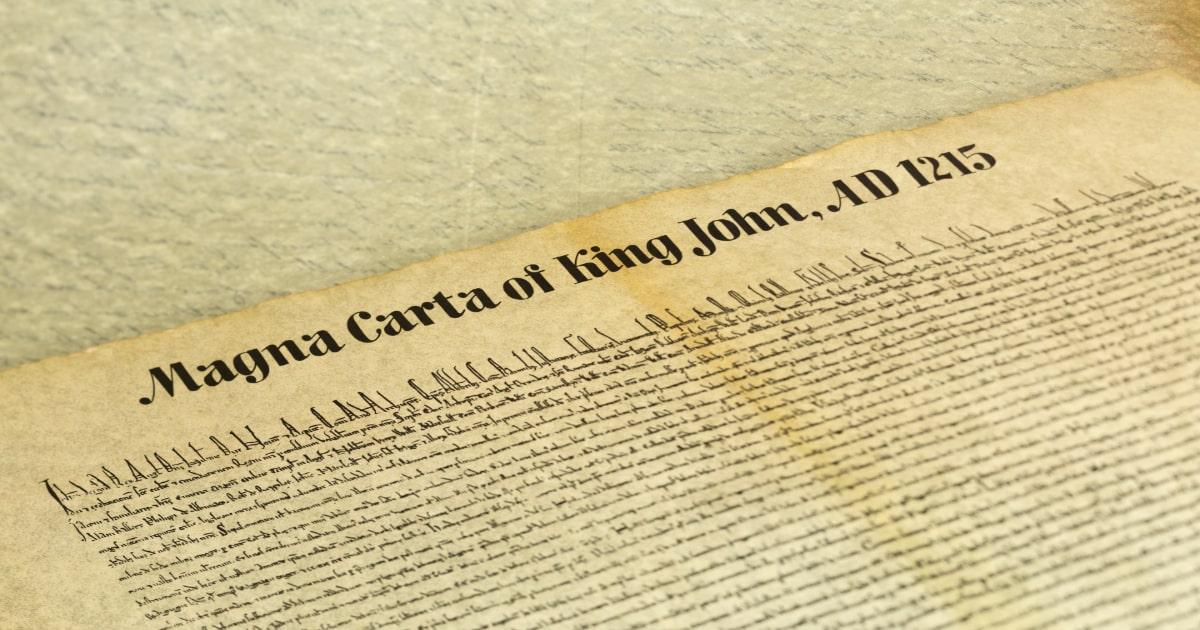
A few hundred years later in 1628, the Petition of Right was created and underlined some key points of the Magna Carta as well as adding new human rights. In relation to military law being declared, this new document stated that:
Step forward another 400 years to modern Britain and we now have the Civil Contingencies Act of 2004, created under the Blair government. This act was designed to update the original Emergency Powers Act of 1920, and give a wider range of powers to the government during times of trouble in the UK, making laws in a matter of hours instead of going through the duly elected parliament which is the normal way of doing things.
All laws are suspended during the implementation of this Act, including the Bill of Rights of 1688, the Magna Carta of 1297, and the Habeas Corpus Act of 1679. The only act that is not suspended by this bill, thankfully, is the Human Rights Act of 1998.
It was introduced to provide assistance in emergencies, both local and national, such as the widespread flooding of 2000, the fuel crisis of the same year, and Foot and Mouth Disease a year later in 2001. But what exactly does this new Act state and what does it mean for preppers?
[pdf-embedder url=”https://britishprepper.com/wp-content/uploads/2022/03/Civil-Contingencies-Act-2004-1.pdf” title=”Civil Contingencies Act 2004″]
It is divided into three parts. Part One concerns local authorities having plans in place to prevent an emergency situation from developing, and then plans for controlling the emergency should it occur. Part Three is just a general section regarding funding for developing the plans, and for any amendments.
Part Two is the main bulk of the act, the section giving the government sweeping powers. It first defines the word ‘emergency’ and what constitutes this, and it lists a range of scenarios which ‘threaten serious damage’ to human welfare, the environment or the security of the UK. To be classed as an emergency, the SHTF situation has to cause, among other things:
Under Article 22, there is also a list of authoritarian actions which can be taken by the government:
In a SHTF scenario, if the Civil Contingencies Act was enacted, the government could prevent you from protesting in a certain area (outside parliament for example), set up a curfew on when you needed to be in your home or when you could travel. On top of that the police or army could come into your home, confiscate all of your prepping supplies and force you to enter a government camp.
It’s a given that during such periods Habeas Corpus would be withdrawn under the guise of ‘national security’
In America, there are very similar laws, however they are not contained within a single piece of legislation, instead there are a number of Executive Orders that can be brought into force to control every aspect of the economy and daily life. In many cases these are even more severe and wide-reaching than the UK laws.
For example, with the stroke of the presidential pen, Executive Order 10995 lets the government take full control of the media, Executive Order 11000 gives the government permission to mobilise citizens into work brigades, and Executive Order 11005 allows it to take over any inland waterways and railroads.
New legislation was brought into force in 2020 via the Coronavirus Act, alongside The Health Protection Regulations 2020, in order to cope with the apparent ‘pandemic’ with a survival rate of 99.7% plaguing Britain.
However, many parts of the legislation give the government more power over the people than is thought necessary, a medical martial law if you will, including the withdrawal of Habeas Corpus and rolling lockdowns where people can’t leave their homes.
We all know about how we were meant to stay in lockdown for just three weeks in March 2020 to flatten the curve, which eventually evolved into months and months of being kept prisoner in our own homes like permanent curfew, only allowed to leave for an hour of government sanctioned exercise each day. This was a form of medical martial law with many of the same characteristics without the military oppression.
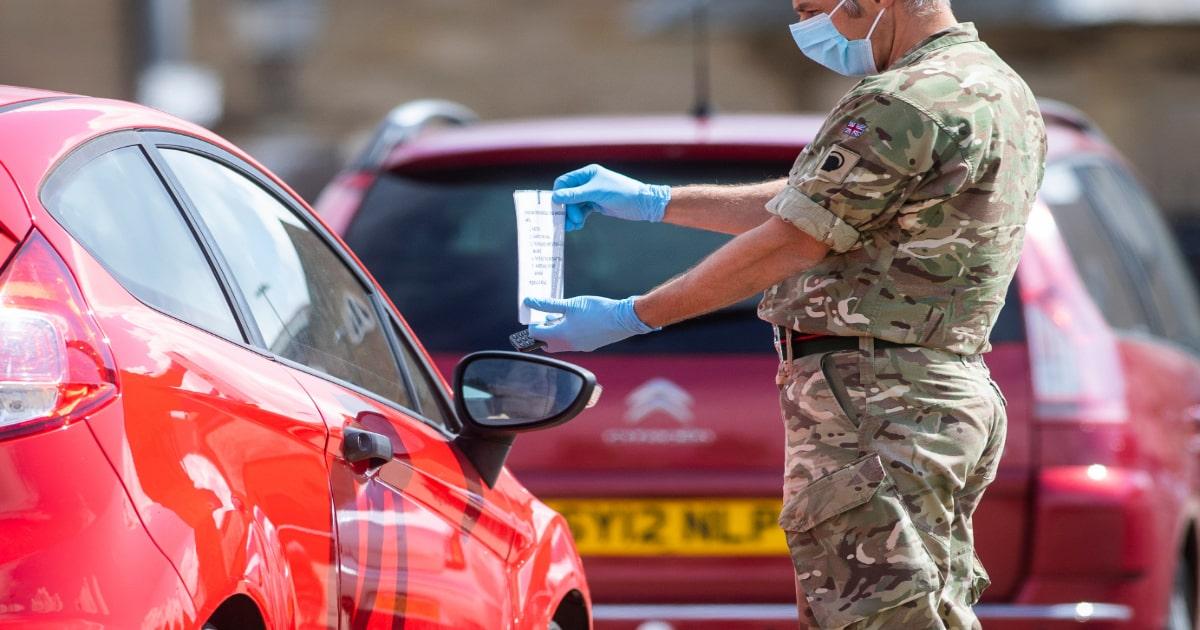
The Act also has a number of sections stating what can be done through this health emergency to bring the virus under control and of course, protect the precious, underfunded, not-fit-for-purpose NHS and its troops of dancing doctors. Just some of the extensive new powers are outlined here that preppers should know about, and this Act allows:
Combining the Coronavirus Act 2020, The Health Protection Regulations 2020 and the Civil Contingencies Act 2004, and the government has basically all the power it needs to do anything it feels like to the population.
With these three pieces of legislation in play, they could literally close your business, put you in lockdown in your home, come to your house and separate you from your family, take anything they want from your property, put your children into foster care, place you in a medical facility, stop anybody from coming to see you, declare you mentally unwell and force medical treatment on you against your will.
If you then died, there would not be an inquest into your death, you could be cremated without your family’s approval, and the icing on the cake would be that your partner and friends would not even be allowed to gather together anywhere to protest your death or attend your funeral – all in the name of protecting you!
So you can see why preppers should always be ready to act in case any type of military or medical martial law is declared, to defend yourself from human rights violations – sadly, even in 21st century Britain.
Now we’ve dealt with the legal aspects and mechanisms of what martial law entails, let’s take a look at the real life aspects of what it would be like if the UK were suddenly plunged into martial law via a real emergency, a terrorist attack, or even via a pre-planned false flag attack.
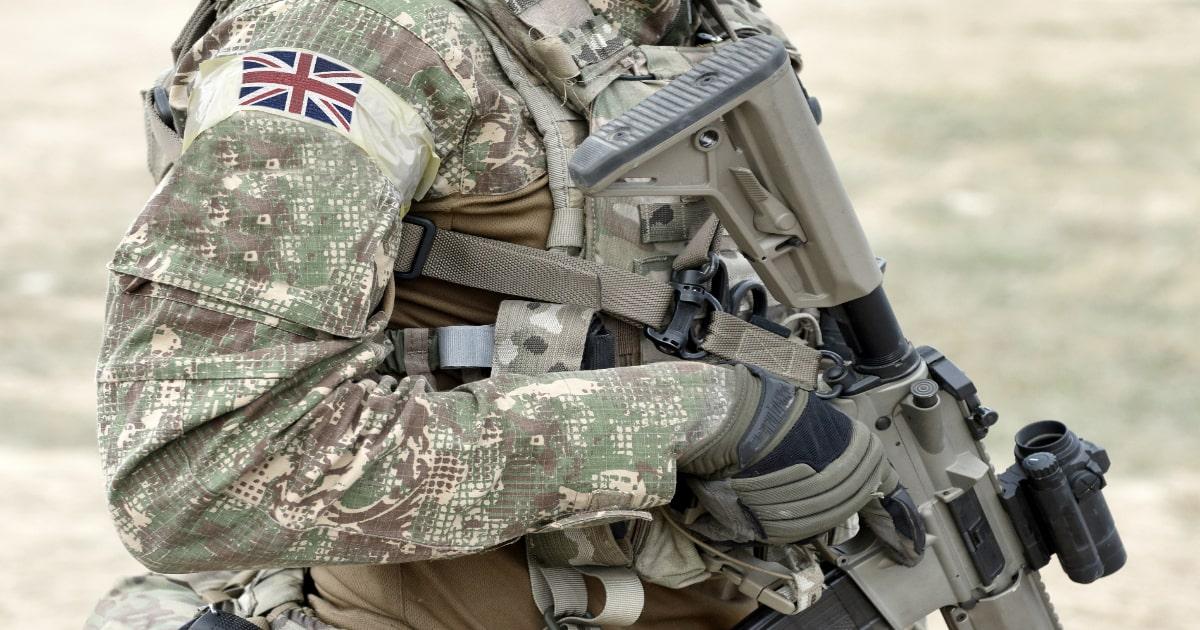
To be fully classed as martial law instead of just a strong police state governed by the Civil Contingencies Act, there needs to be a military presence in charge of the emergency. The Act does allow for this, however for the army to be brought in, the government would need to invoke Military Aid to the Civil Authorities, also known as MACA.
Once the Civil Contingencies Act is brought into play, then the government would have to make a formal request for assistance to the Ministry of Defence, via the Operations Directorate, which needs approval by the Minister of Defence.
The military is only able to provide assistance when there is not enough capacity to handle the situation within civilian forces, for example in a time of mass rioting, or for an event which is deemed ‘catastrophic’.
But is it even legal for the British military to be deployed on UK soil and who can declare martial law? The short answer is yes, British troops can deploy on home soil however it is only to be used in exceptional circumstances. The Prime Minister, the Minister of Defence and the monarch can all declare martial law.
This can be done through the method mentioned above or it can be done directly by Royal Prerogative. This is when the monarch gives direct orders for the military to be deployed on British soil, without even asking parliament. Using this overarching power, the monarch can also withdraw a passport from anyone, dissolve parliament completely and declare war against any country. Yes, really!
Once enacted, martial law can last as long as the government wants depending on the types of martial law the country is put under. There is likely to be some form of parliamentary scrutiny, that is if it still exists, who should attempt to hold the government to account and end any overly restrictive measures as soon as possible.
However, if the government has taken control and the situation is ongoing, such as a nuclear bomb with long-term radiation or widespread dissent and government opposition, then they could in theory keep renewing the legislation.
The Civil Contingencies Act of 2004 does have a clause in it which states it is only allowed to be enacted for 30 days at a time, after that time it needs to be extended by parliamentary vote.
Any number of situations could provoke martial law to be declared in the UK, that’s perhaps one of the reasons which make it such a strong possibility to happen as many of the SHTF scenarios on this list could bring about this SHTF situation.
Any kind of widespread rioting or mass civil disobedience which threatens national security could be grounds for enforcing martial law. This could be as the result of a food, water or fuel shortage, or even from a cyber attack, a nuclear attack or financial collapse. Martial law survival tactics employed here would involve staying away from protests and generally people who are being destructive, as they will be targeted first.
There may be a coup d’etat like there was in Egypt or Thailand, where a group of people or the military try to overthrow the current UK government structure and take power. In the course of just the last century alone there have been at least 100 coup d’etats around the world, including 40 just since 2010.
In Britain, a coup d’etat probably couldn’t be achieved by the military as the numbers are too small to take control of the country as a whole.
Martial law could be declared in response to a popular protest like the kind which took place in China in 1989, known famously as Tiananmen Square, where the death toll is estimated to be around 10,000 citizens. Over one million people gathered at one point during these protests.
In Britain, the number of citizens (50 million adults) outnumber the combined police force (150,000) and armed forces (145,000) at a ratio of 170:1 so it would be very difficult to control an entire country uprising.
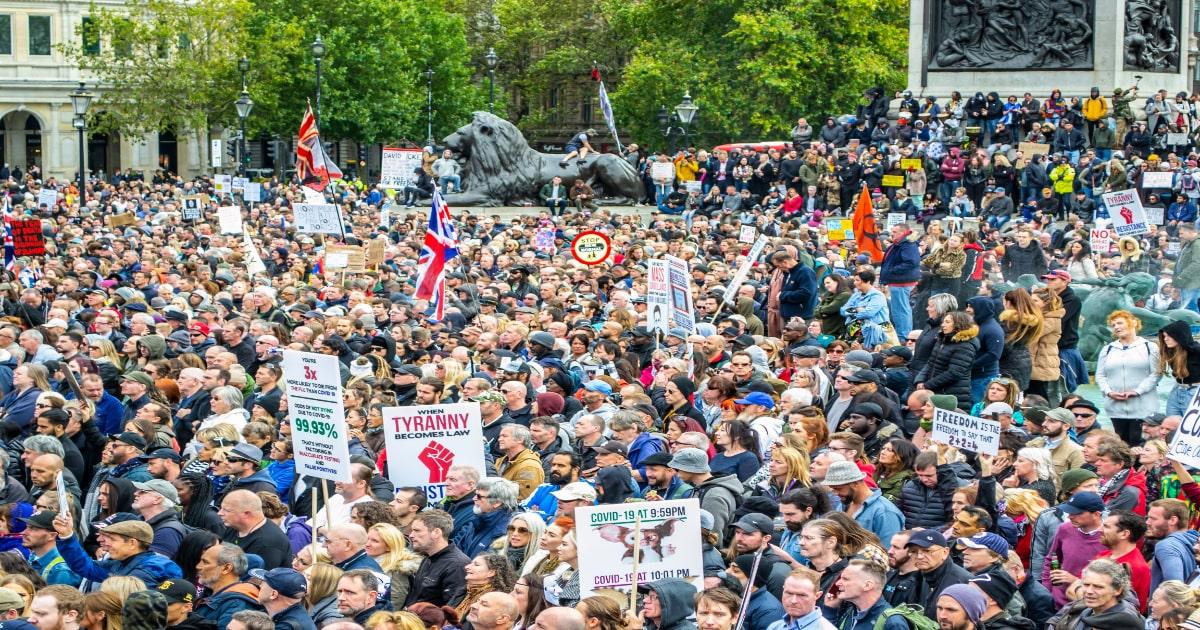
If there was a large political opposition, such as the kind that took place in Poland in the early 1980s with thousands of political opponents imprisoned, the government can declare martial law and take control of the country to ensure continuity of government. The little-known REX-84 in America would have been used to round up thousands of citizens who were opposed to military operations in other countries.
An insurrection, or even a perceived one, could also give the government the authority to declare strict military rule. This happened in Canada just 50 years ago, when Justin Trudeau’s father granted the police extensive powers and called in the military in response to the kidnapping of a diplomat from Britain and the Deputy Premier of Canada – nearly 500 people were arrested.
Like father like son, the Canadian premier enacted the Emergencies Act (a new and improved War Measures Act) in 2022 to deal with a grassroots protest of peaceful truckers who had descended on Ottawa to stand up against the dictatorial coronavirus pandemic measures he had implemented on the citizens of Canada.
The Insurrection Act of 1807 has been used numerous times in America, the last time in 1992 in Los Angeles. The January 6th ‘insurrection’ obviously didn’t warrant the Act’s invocation, as it was just people walking through the Capitol building, not seriously trying to actually overthrow government.
Any kind of natural disaster could also call for marital law to be enacted, be it a widespread fire during a hot summer, an earthquake that destroys lots of properties, severe flooding affecting millions of homeowners or any other kind of force of nature. In America, these are known as ‘states of emergency’ and can warrant additional powers to be invoked, so preppers should be ready for anything and use every survival tip in the book.
Technically, as soon as Britain comes under attack from a foreign enemy, or even a substantial domestic enemy via civil war, martial law can be declared until the situation is under control. This was not true for the Afghanistan and Iraq war as they were far away, but if France or Germany for example tried to invade, martial law would come into effect.
It is mainly a control measure to make sure its own citizenry is not going to make the war even worse, and improves chances of winning.
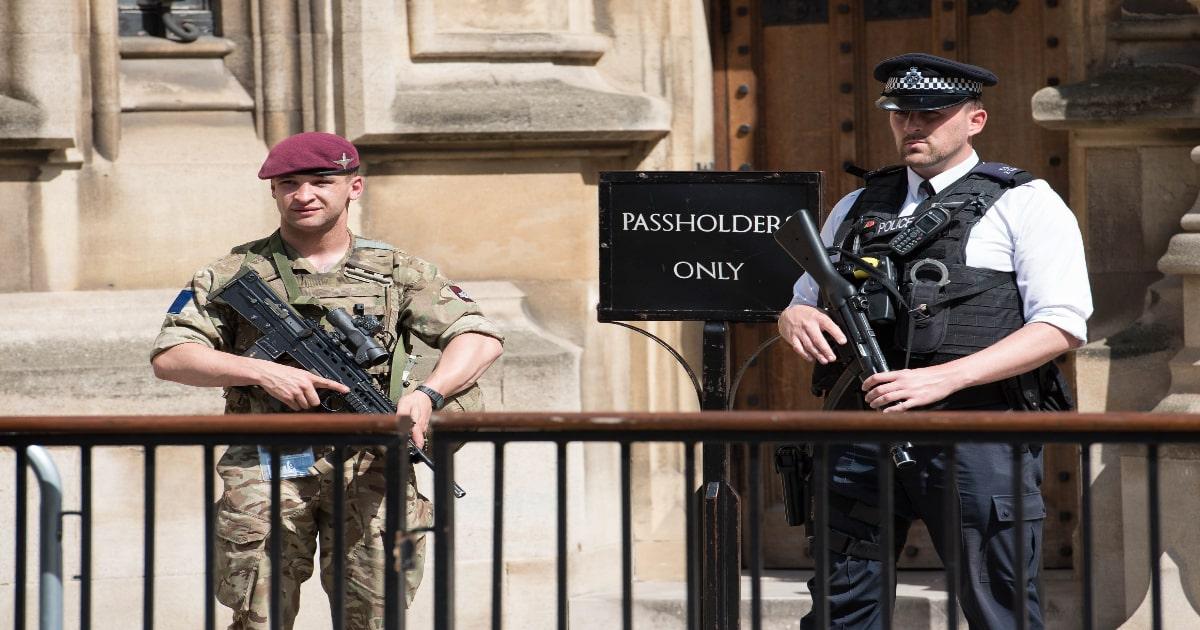
Martial law may come in slowly in with building social tension resulting in mass riots, civil unrest and disobedience. It might even take the form of an economic collapse which is seen on the horizon and the government warns the population about it.
This would likely give preppers the time to get ready, understand the different stages of martial law, and make the next move before it is actually brought down on the population.
However, it is most likely to be installed quickly in response to an emergency catastrophic situation such as a terrorist attack, a nuclear bomb, a false flag, or a large-scale cyber attack. This is also true of natural disasters, such as an earthquake or storm which causes a huge amount of damage across the country, leaving millions homeless and without food or water.
The first signs you would see if the government planned to implement martial law would likely be any number of the following, depending on the kind of emergency:
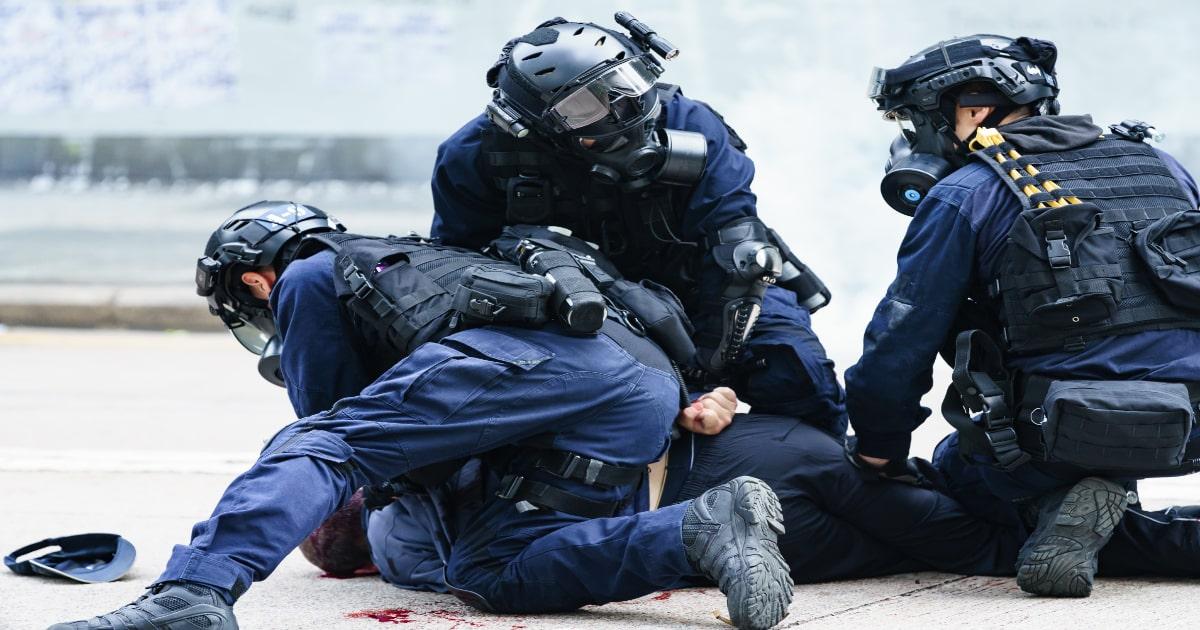
When martial law is finally declared, expect the world as you knew it to be turned upside down and expect to live in a strictly controlled society where all of the freedoms you once knew have gone out of the window, including Habeas Corpus. Your rights that you once took for granted would be severely curbed, and preppers could expect the following suspension of human rights and excessive human rights violations:
As you can see, life under the strictest level of martial law as seen in Nazi Germany would be pretty horrific and it’s clear you’ll need a survival guide like this one to help you through these difficult times. It is expected though that different stages of marital law would still apply and not all of these rights could be taken away, especially if the UK was still upholding the basic Human Rights Act of 1998 when it was enforced.
Without that still in place, you wouldn’t really have a leg to stand on in the face of the tyranny. However, this is set to be reformed in the UK in coming years, so who knows what could be proposed?
You’re probably wondering if rights are actually rights if they can be taken away. Well, when the rights are put into a document or act telling you what rights you actually have, then that document is the declaration of your rights upheld by the state rather than you just having them simply because you are a human.
At this point they can then be withdrawn under the guise of public health or national security – the greater good, as it were.
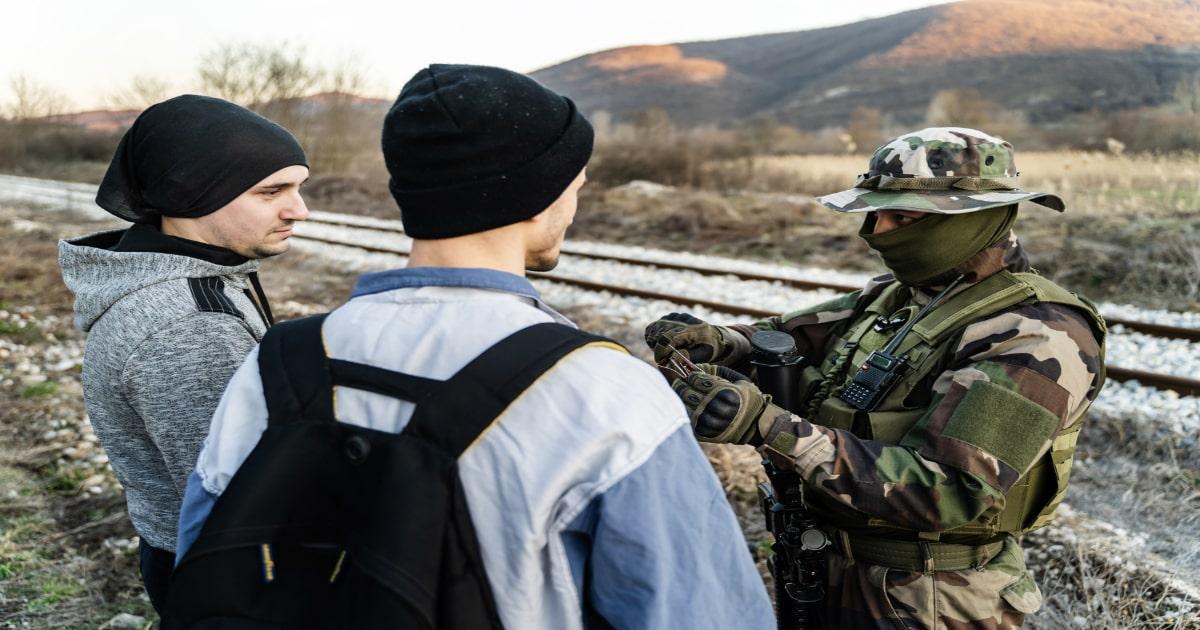
Let’s take a look at how martial law would affect the UK prepper, and how its implementation in the UK would change the face of our daily life. The main hazards of martial law would derive from the suspension of rights and laws, meaning the military could act in whatever manner they want with total immunity.
Sounds pretty terrible, doesn’t it? Out of all the possible SHTF scenarios that could happen the implementation of martial law in Britain, or anywhere in the world for that matter, has to be one of the worst. Many of the other scenarios can be dealt with rationally, but martial law on the other hand completely changes the whole way of life for millions of people and a specific survival guide is needed here.
The effects of martial law would especially be felt harshest in western societies like America, Canada, Australia and the UK because we’ve had it so good for so long, this would be a total shock to the system and many people simply wouldn’t be able to cope. As the rule of military is so harsh, it is perhaps one of the most important SHTF scenarios to prep for and know what to do should it ever happen.
The good news is that there are lots of steps preppers can take when it comes to preparing for martial law. The first thing that you’ll need to counteract food rationing would be to obviously stockpile lots of food and water of your own. Taking a trip to the supermarket with hundreds of people in an agitated state is definitely not going to be fun.

Due to the fact the military can barge into your home and confiscate whatever they like, it would be sensible to have great hiding places for your supplies, or even buried in a barrel in your back garden. Having a survival garden won’t be a bad thing to camouflage your foods, so try to grow root vegetables such as potatoes and carrots rather than things which can be seen above ground like tomatoes and cucumbers.
Having lots of weapons for martial law isn’t really going to serve you well here in the UK. You may have a shotgun or an air rifle, but trying to fight against the military isn’t going to end well – these guys are equipped head to toe and trained extensively ready for a fight, and mentally prepared with tactics and resilience too.
By all means, keep weapons for hunting or if you need to bug out and defend yourself, but put any thoughts of fighting against martial law out of your head, either on your own or with a group, it’s simply not going to happen.
A good survival tip for martial law is to keep all of your documents of identification in a folder along with copies of them elsewhere in case you need to access them quickly to go out shopping or pass through a military checkpoint or blockade. Have a radio to hand so you can try and tune into a station to get an update on what is going on, without this you’ll likely be frustrated if the television isn’t working.
Stock up on basic medicines too, and anything you need for specific medical conditions.
Preppers should try to blend in and not stand out as high profile during martial law. If you are seen to be disobedient, cheeky or otherwise provocative by the soldiers you’re going to attract the wrong kind of attention which could jeopardise your home, your family, your supplies and even your life. This could also involve dressing in basic clothes, don’t wear your camouflaged gear or anything that could be perceived as military.

Become an avid listener, try to hear what your neighbours are saying or overhear conversations from situations to try and gauge the situation and what’s going on. The more information you have the better prepared you will be. Don’t run your mouth about your supplies or your own opinions on the situation in case your neighbour snitches on you.
Understanding the rules of martial law that have been implemented will go a long way in your favour. If they say nobody can leave the house after 8pm, then don’t tempt fate by walking to a neighbour’s house. Keep a notebook of all the different rules, or things you’ve been told so you don’t forget.
In case of a financial collapse, you should have money or other items for bartering on hand because your bank card is unlikely to work. Bank accounts will probably have been wiped clean and there may not be a decent supply of electricity.
You should also be preparing yourself physically for martial law, as access to gyms and healthy food may be severely restricted. Travel by car may also be impeded, so you’ll likely have use a different mode of transport to walk or cycle miles to pick up basic supplies.
When the country is under this form of military command there are some top prepper survival tips for martial law that you should take into consideration to keep you safe and alive, more specifically things you shouldn’t do.
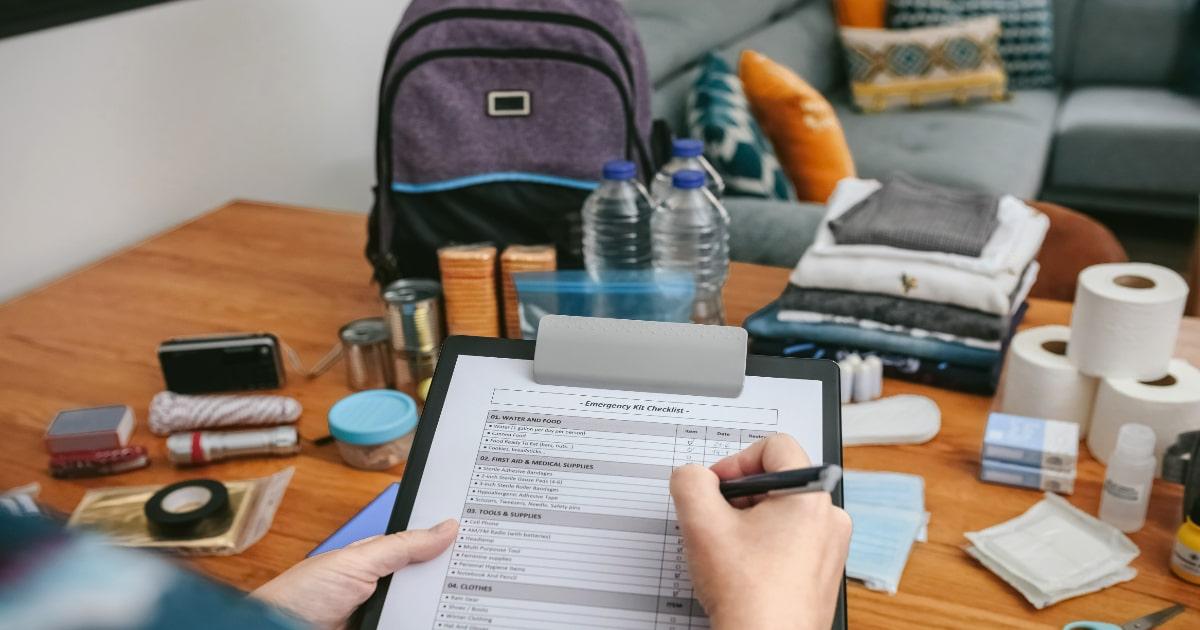
Food supply – you should have a large supply of food hidden in various locations around the home
Gardening – have seeds ready to grow a survival garden close to your home, preferably root veg
Caches – hide your gear and supplies in caches or a small bunker in your garden or near the property
Water supply – Stash your water bottles out of sight if the mains water supply is not working
Secure property – board up your windows with wood and nails, make your garden inaccessible
Tools – simple tools like a hammer, saw and drill will come in handy for basic around the house tasks
Alternative lighting – use candles and torches to find your way around if the electricity grid is down
Alternative fuel – you can use solar power to generate electricity for your home, or a wood stove
Weapons – primarily for hunting and defence, not to be used against the military, hide them well
Clothing – have some basic clothing and try not to wear camouflage or other military gear outside
Cooking utensils – you should have use of all the regular utensils and pots and pans in your home
First aid – hospitals may be running at low capacity so be sure to have a first aid kit with essentials
Transport – have your car filled with fuel ready to go, or use a bicycle, or better yet go places on foot
Entertainment – stuck in your house, you’ll need some board games or a deck of cards, books too
Power – have a few charged up power banks will help to run basic devices without mains electricity
Hygiene – stock plenty of dry soap to keep yourself clean, and bin bags too for your rubbish
Communication – keep some walkie talkies to chat to close neighbours, and have a radio for updates
Documents – you will need to keep your identification on your person so store it safely

If you’ve planned to bug out when martial law hits then you need to be ready to move fast, as once the military patrols start rolling into your town and checkpoints are set up, your chances of travelling long distances are slim to none. The best martial law survival tactics involve having somewhere stocked with supplies away from large towns, cities and neighbourhoods – this will be a major advantage to a prepper.
Here you can live your life more or less as normal without the military breathing down your neck, watching your every move.
You could even end up in a UK concentration camp or re-education centre to be ‘re-educated’ if you hang around. In America there are already lots of vacant FEMA camps set up ready to receive large amounts of people. The same is probably true here in the UK with lots of suitable places that could quickly be converted, as virtually every primary and secondary school in the UK now resemble prisons, if you hadn’t noticed, thanks in part to the 1996 DfEE guide.
If you have nowhere to go and have to stay bugged into your home, then make it as secure as possible and follow the specific survival guidance for this SHTF situation. You don’t want to set yourself up to look like a fortress, that may signal to your neighbours and the military that you have something to hide or are a threat.
Boarding up your windows or keeping your curtains closed would be a good call, and always have the doors locked to prevent unwanted intrusion.
When bugging in, you are probably going to have a tougher time than if you would have packed up and left the moment martial law was declared. You will only be able to leave your house at certain times, have to queue for government rations along with lots of other people who are nervous and probably angry, and also be subject to unwanted stop and searches as well as property and possession seizures.
You may also be told to leave the area on a military bus to be taken somewhere you can’t ensure your own safety. You’ll have to stay as discrete as possible at all times, and live with the very real threat of your own military on your doorstep around the clock if you stay bugged in.
If you bug out, people may wonder where you’ve gone and that could raise concerns for your whereabouts, but it’s likely the military will be so busy doing daily tasks that they won’t be able to chase single people or families down who have fled to an unknown destination.
There’s a good chance that after a certain event or situation has passed or been dealt with properly and the government or military is satisfied, that martial law can be lifted. This would mean that rights are returned to citizens and an elected government is once again in power.
The act of living under martial law will have messed a lot of people up physically and mentally, so it is likely things wouldn’t return exactly to normal for a few months or years.
Businesses would have collapsed and utility services would not be running the same for sometime into the future. The worst scenario would be if the military and its leaders get a taste of this power and didn’t want to relinquish it so readily, extending martial law for years or indefinitely.
Nineteen Eighty-Four | 1986
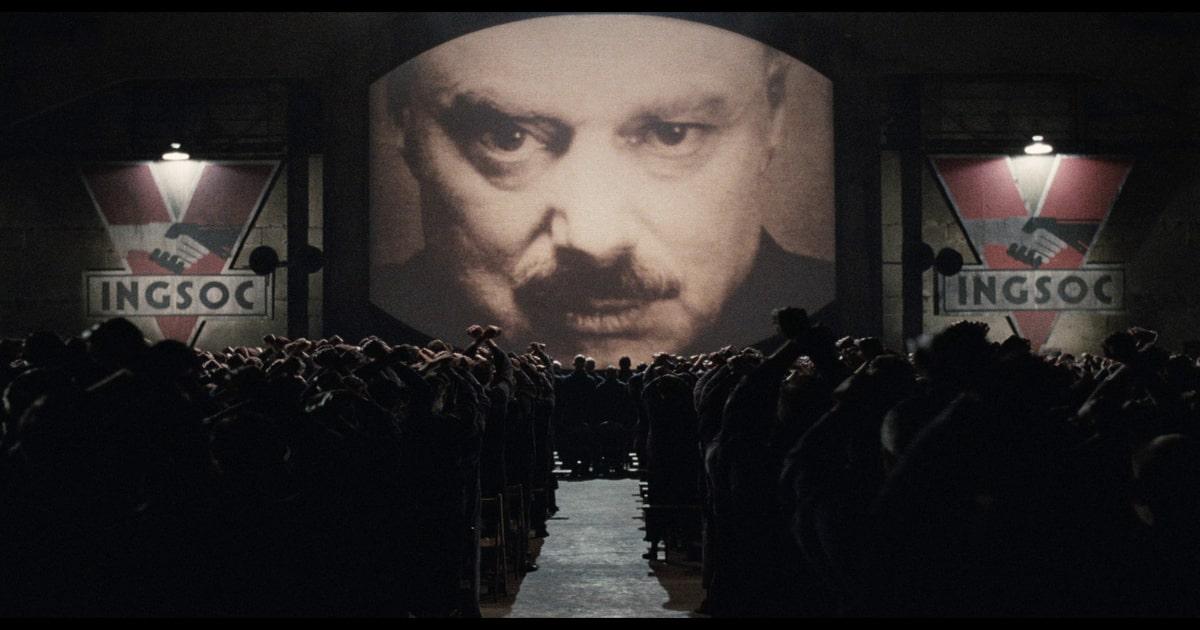
The movie version of the classic George Orwell novel, this is a real eye-opener of what life is like living under the boot of a repressive, dystopian regime with martial law in place. The main character, Winston, is involved in creating propaganda by erasing parts of history that the leaders don’t like. The whole society is monitored and watched by Big Brother, with listening devices and a video camera placed in every home to make sure dissent and rebellion never happens.
The Siege | 1998
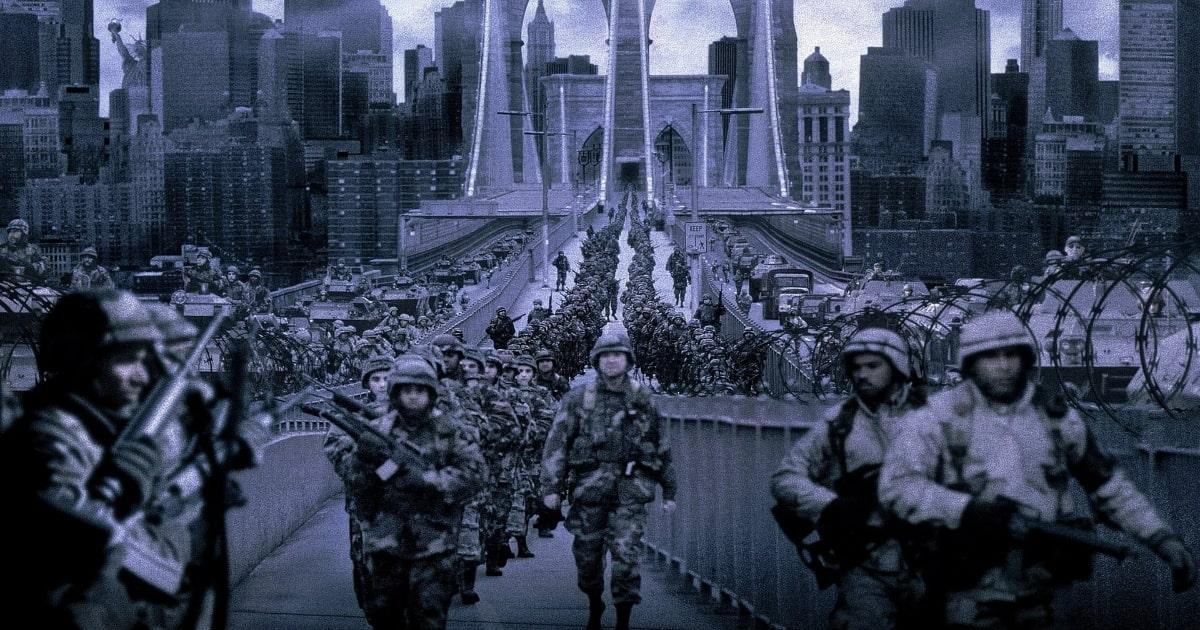
A look at the American version of martial law taking place in New York after multiple locations are attacked by terrorists including the FBI headquarters. Denzel Washington plays a starring role, and a harsh racist figure from the military, portrayed by Bruce Willis, is put in charge of rounding up and detaining Arabs living in the city. They are then transferred to a detention facility, whilst a female CIA agent attempts to resist and restore freedom to the city.
Martial Law 9/11: Rise Of The Police State | 2015
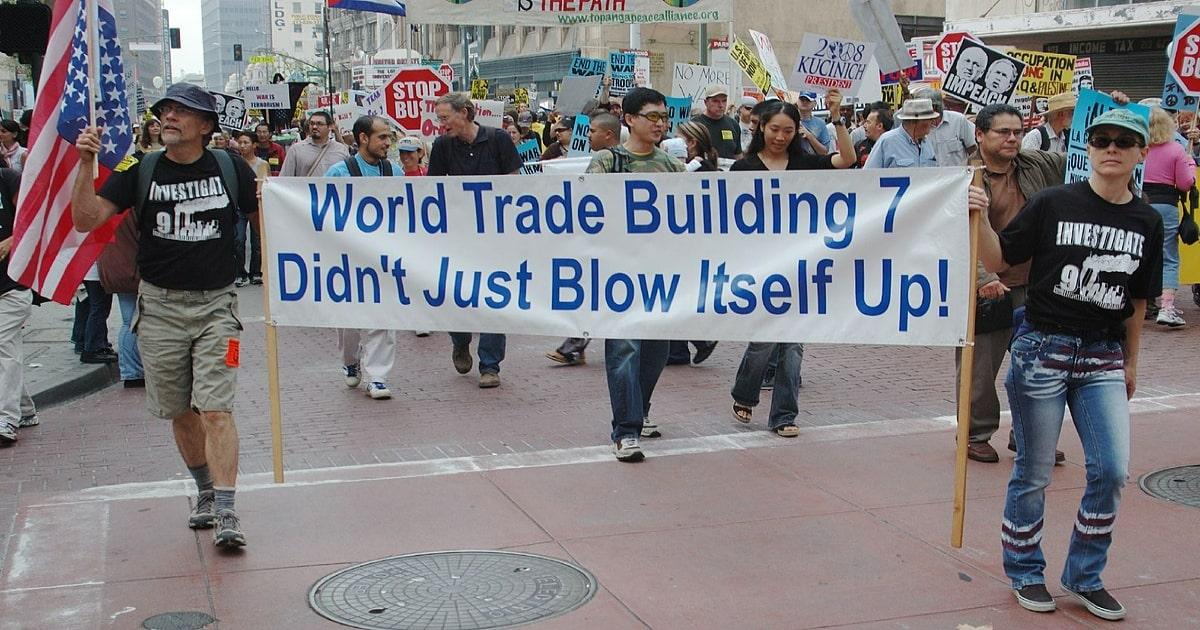
A three-hour long epic directed by the most famous conspiracy theorist of modern times, Alex Jones of InfoWars. This documentary shows the brutal honesty of what the modern American martial law police state has evolved into, with thousands of protestors unlawfully detained. The film tackles a number of subjects including 9/11 conspiracies and the rule of military law in the USA, as well as the rise of an emerging police state thanks to anti-terror legislation passed by George Bush.
Songbird | 2020

A crazy look at American life a few years into the future after the coronavirus has mutated into an even deadlier disease called COVID-23. The whole nation is under house arrest and only a few people are allowed to leave their homes, those with natural immunity or those who have received a vaccine. Things go wrong when a motorcycle courier’s girlfriend registers as positive for the virus and the health authorities try to remove her to a quarantine camp – the Q-Zone.
The Forever Purge | 2021
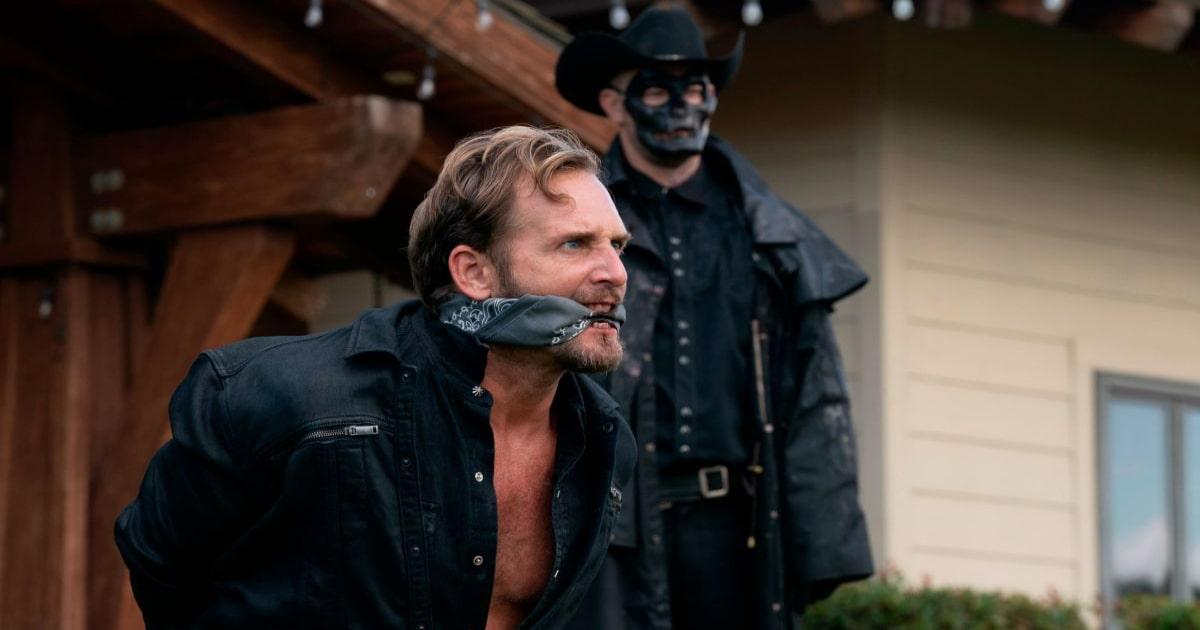
The fifth and final film in the Purge franchise, The Forever Purge takes place in the year 2048 when the purge has been reinstated. Racism is rife, and a group of Mexicans and those other than white Americans are targeted by those wishing to forever purge their nation of people of colour. A family attempts to help the immigrants escape back to Mexico, putting their own lives in danger as they navigate the forces put in place by martial law to get them out of the country.




British Prepper is dedicated to bringing you the most useful information on a wide variety of prepper, survivalist and bushcraft related topics. We really hope that a major SHTF situation never strikes the United Kingdom, but as the old saying goes, failing to prepare is preparing to fail - so always be prepared!





